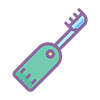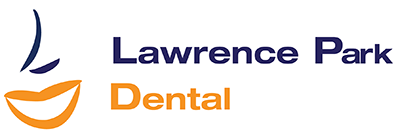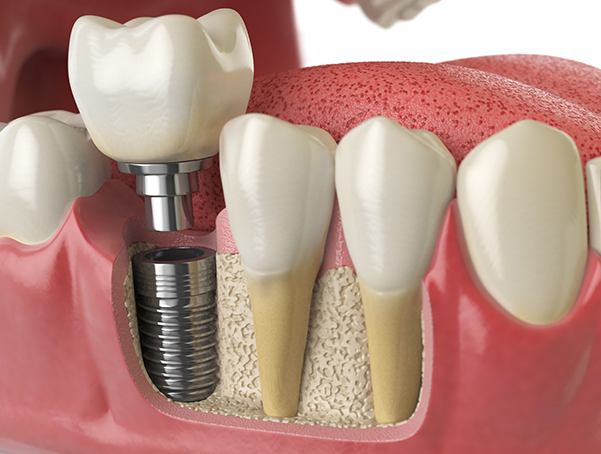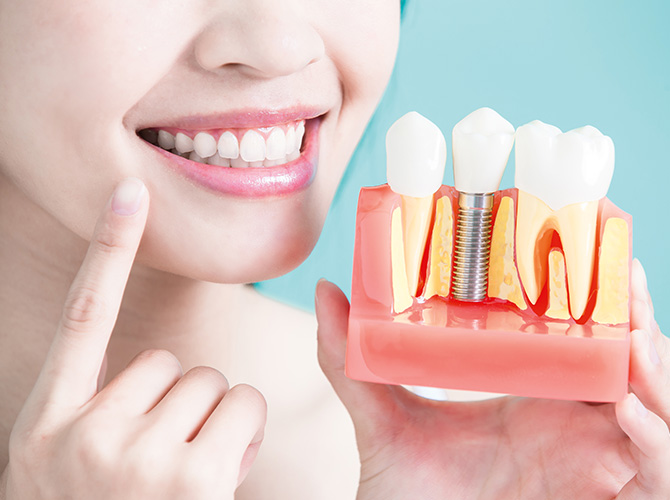Choosing the Right Toothbrush: A Quick Guide
Manual or electric? Soft, medium, or hard bristles? Small or large head? A toothbrush may be simple, but there are quite a few things you need to consider when choosing one.
You have to brush your teeth twice a day for at least two minutes each time to maintain good oral health. So you might as well make the most of those two minutes by using the right brush.
Read on for our simple step-by-step guide to choosing the right toothbrush.
1. Decide If You Need an Electric Toothbrush
 Marketing hype aside, electric toothbrushes are useful if you need to make sure you brush your teeth for long enough. Or if your manual dexterity has been affected by an injury or medical condition like arthritis.
Marketing hype aside, electric toothbrushes are useful if you need to make sure you brush your teeth for long enough. Or if your manual dexterity has been affected by an injury or medical condition like arthritis.
Your dentist may also recommend an electric brush if you’re battling a constant buildup of plaque. Or if your teeth are very sensitive and a normal brush may damage them.
Otherwise, a manual toothbrush is just as good as an electric one, provided you use fluoride toothpaste and brush for the recommended two minutes each time.
2. Select the Right Type of Bristles
Soft bristles can remove plaque and bits of food stuck between the teeth while reducing the risk of enamel damage. A brush with soft bristles is a safe choice whether you have normal or sensitive teeth.
However, your dentist may recommend a brush with medium or hard bristles in some cases. But unless your dentist advises you otherwise, look for soft bristles.
3. Pick the Size of the Toothbrush Head
Some brushes have larger heads than others. There’s no one-size-fits-all solution here. Depending on the size of your teeth, a small-headed brush can help you reach more easily the teeth at the back of your mouth.
Wisdom teeth, in particular, can trap food debris. With a large-headed brush, you may not reach them properly or struggle to do so.
4. Select a Comfortable Handle
Toothbrush handles can be light, non-slip, flexible, angled, and more. If any of these features are important for you, take them into account.
Since you are going to use your brush every day for up to three months, you may as well choose a handle that you enjoy.
A bulky, heavy handle can make brushing less comfortable, and you may not put in the recommended 2 minutes of brushwork.
5. Choose the Material of the Brush
Plastic toothbrushes are the most common, but they’re not necessarily the best choice for the environment.
Unless recycled, the plastic handle of a brush may take hundreds of years to decompose in a landfill. Many brushes have nylon hairs. Nylon is also a plastic, made from petroleum.
More environmentally friendly options include toothbrushes made from bamboo, wood, or composite materials sourced with the environment in mind. Some of these brushes will also have biodegradable, plant-based hairs.
An electric toothbrush with recyclable toothbrush heads can also be a more eco-friendly option than the average plastic and nylon toothbrush.
6. Consider Any Extra Features You May Need
Problems with plaque buildup on the tongue? A toothbrush with tongue-cleaning bristles can help.
At the end of the day, though, a toothbrush is a simple item. Focus on the essential features rather than on the marketing hype.
A brush with soft bristles and a comfortable handle is good enough for cleaning all areas of your mouth, tongue included.
7. Durability
 A good toothbrush will last daily brushings for up to three months. After three months, you need to change the brush. Note that some electric brush heads need to be changed more often.
A good toothbrush will last daily brushings for up to three months. After three months, you need to change the brush. Note that some electric brush heads need to be changed more often.
It’s also important to change your brush if you have a cold or infection. The bristles of a contaminated brush may catch germs and cause reinfection.
In the end, it can be useful to ask your dentist for advice on choosing the best brush for you. They know your teeth and the state of your oral health and can make useful recommendations.
To find out more about our choosing the right toothbrush, call Lawrence Park Dental today. We are conveniently located at the corner of Yonge St and York Mills – just south from HWY 401. Dr. Queiroz has been practicing dentistry since 1995 and is very passionate about oral health. He would be thrilled to help you with your questions.











